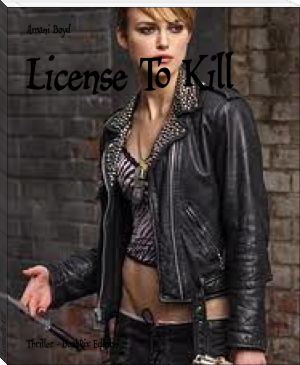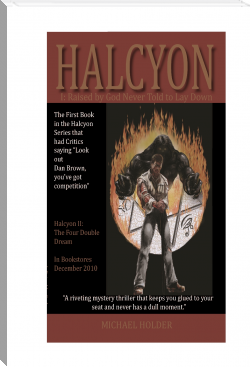Crisis Management: Beyond the Call of Duty by Craig A. McDonough (best inspirational books .txt) 📕

- Author: Craig A. McDonough
- Performer: -
Book online «Crisis Management: Beyond the Call of Duty by Craig A. McDonough (best inspirational books .txt) 📕». Author Craig A. McDonough
[Either to or from the enemy’s country.]
64. Be stern in the council-chamber,
[Show no weakness, and insist on your plans being ratified by the sovereign.]
so that you may control the situation.
[Mei Yao-ch’en understands the whole sentence to mean: Take the strictest precautions to ensure secrecy in your deliberations.]
65. If the enemy leaves a door open, you must rush in.
66. Forestall your opponent by seizing what he holds dear,
[Cf. supra, § 18.]
and subtly contrive to time his arrival on the ground.
[Ch’en Hao’s explanation: "If I manage to seize a favourable position, but the enemy does not appear on the scene, the advantage thus obtained cannot be turned to any practical account. He who intends therefore, to occupy a position of importance to the enemy, must begin by making an artful appointment, so to speak, with his antagonist, and cajole him into going there as well." Mei Yao-ch’en explains that this "artful appointment" is to be made through the medium of the enemy’s own spies, who will carry back just the amount of information that we choose to give them. Then, having cunningly disclosed our intentions, "we must manage, though starting after the enemy, to arrive before him (VII. § 4). We must start after him in order to ensure his marching thither; we must arrive before him in order to capture the place without trouble. Taken thus, the present passage lends some support to Mei Yao-ch’en’s interpretation of § 47.]
67. Walk in the path defined by rule,
[Chia Lin says: "Victory is the only thing that matters, and this cannot be achieved by adhering to conventional canons." It is unfortunate that this variant rests on very slight authority, for the sense yielded is certainly much more satisfactory. Napoleon, as we know, according to the veterans of the old school whom he defeated, won his battles by violating every accepted canon of warfare.]
and accommodate yourself to the enemy until you can fight a decisive battle.
[Tu Mu says: "Conform to the enemy’s tactics until a favourable opportunity offers; then come forth and engage in a battle that shall prove decisive."]
68. At first, then, exhibit the coyness of a maiden, until the enemy gives you an opening; afterwards emulate the rapidity of a running hare, and it will be too late for the enemy to oppose you.
[As the hare is noted for its extreme timidity, the comparison hardly appears felicitous. But of course Sun Tzŭ was thinking only of its speed. The words have been taken to mean: You must flee from the enemy as quickly as an escaping hare; but this is rightly rejected by Tu Mu.]
[1] Giles’ Biographical Dictionary, no. 399.
[2] "The Science of War," p. 333.
[3] "Stonewall Jackson," vol. I, p. 421.
[Rather more than half the chapter (§§ 1-13) is devoted to the subject of fire, after which the author branches off into other topics.]
1. Sun Tzŭ said: There are five ways of attacking with fire. The first is to burn soldiers in their camp;
[So Tu Mu. Li Ch’uan says: "Set fire to the camp, and kill the soldiers" (when they try to escape from the flames). Pan Ch’ao, sent on a diplomatic mission to the King of Shan-shan [see XI. § 51, note], found himself placed in extreme peril by the unexpected arrival of an envoy from the Hsiung-nu [the mortal enemies of the Chinese]. In consultation with his officers, he exclaimed: "Never venture, never win! [1] The only course open to us now is to make an assault by fire on the barbarians under cover of night, when they will not be able to discern our numbers. Profiting by their panic, we shall exterminate them completely; this will cool the King’s courage and cover us with glory, besides ensuring the success of our mission.’ The officers all replied that it would be necessary to discuss the matter first with the Intendant. Pan Ch’ao then fell into a passion: ‘It is today,’ he cried, ‘that our fortunes must be decided! The Intendant is only a humdrum civilian, who on hearing of our project will certainly be afraid, and everything will be brought to light. An inglorious death is no worthy fate for valiant warriors.’ All then agreed to do as he wished. Accordingly, as soon as night came on, he and his little band quickly made their way to the barbarian camp. A strong gale was blowing at the time. Pan Ch’ao ordered ten of the party to take drums and hide behind the enemy’s barracks, it being arranged that when they saw flames shoot up, they should begin drumming and yelling with all their might. The rest of his men, armed with bows and crossbows, he posted in ambuscade at the gate of the camp. He then set fire to the place from the windward side, whereupon a deafening noise of drums and shouting arose on the front and rear of the Hsiung-nu, who rushed out pell-mell in frantic disorder. Pan Ch’ao slew three of them with his own hand, while his companions cut off the heads of the envoy and thirty of his suite. The remainder, more than a hundred in all, perished in the flames. On the following day, Pan Ch’ao, divining his thoughts, said with uplifted hand: ‘Although you did not go with us last night, I should not think, Sir, of taking sole credit for our exploit.’ This satisfied Kuo Hsun, and Pan Ch’ao, having sent for Kuang, King of Shan-shan, showed him the head of the barbarian envoy. The whole kingdom was seized with fear and trembling, which Pan Ch’ao took steps to allay by issuing a public proclamation. Then, taking the king’s sons as hostage, he returned to make his report to Tou Ku." Hou Han Shu, ch. 47, ff. 1, 2.] ]
the second is to burn stores;
[Tu Mu says: "Provisions, fuel and fodder." In order to subdue the rebellious population of Kiangnan, Kao Keng recommended Wen Ti of the Sui dynasty to make periodical raids and burn their stores of grain, a policy which in the long run proved entirely successful.]
the third is to burn baggage-trains;
[An example given is the destruction of Yuan Shao’s wagons and impedimenta by Ts’ao Ts’ao in 200 A.D.]
the fourth is to burn arsenals and magazines;
[Tu Mu says that the things contained in "arsenals" and "magazines" are the same. He specifies weapons and other implements, bullion and clothing. Cf. VII. § 11.]
the fifth is to hurl dropping fire amongst the enemy.
[Tu Yu says in the T’ung Tien: "To drop fire into the enemy’s camp. The method by which this may be done is to set the tips of arrows alight by dipping them into a brazier, and then shoot them from powerful crossbows into the enemy’s lines."]
2. In order to carry out an attack, we must have means available.
[T’sao Kung thinks that "traitors in the enemy’s camp" are referred to. But Ch’en Hao is more likely to be right in saying: "We must have favourable circumstances in general, not merely traitors to help us." Chia Lin says: "We must avail ourselves of wind and dry weather."]
the material for raising fire should always be kept in readiness.
[Tu Mu suggests as material for making fire: "dry vegetable matter, reeds, brushwood, straw, grease, oil, etc." Here we have the material cause. Chang Yu says: "vessels for hoarding fire, stuff for lighting fires."]
3. There is a proper season for making attacks with fire, and special days for starting a conflagration.
4. The proper season is when the weather is very dry; the special days are those when the moon is in the constellations of the Sieve, the Wall, the Wing or the Cross-bar;
[These are, respectively, the 7th, 14th, 27th, and 28th of the Twenty-eight Stellar Mansions, corresponding roughly to Sagittarius, Pegasus, Crater and Corvus.]
for these four are all days of rising wind.
5. In attacking with fire, one should be prepared to meet five possible developments:
6. (1) When fire breaks out inside the enemy’s camp, respond at once with an attack from without.
7. (2) If there is an outbreak of fire, but the enemy’s soldiers remain quiet, bide your time and do not attack.
[The prime object of attacking with fire is to throw the enemy into confusion. If this effect is not produced, it means that the enemy is ready to receive us. Hence the necessity for caution.]
8. (3) When the force of the flames has reached its height, follow it up with an attack, if that is practicable; if not, stay where you are.
[Ts’ao Kung says: "If you see a possible way, advance; but if you find the difficulties too great, retire."]
9. (4) If it is possible to make an assault with fire from without, do not wait for it to break out within, but deliver your attack at a favourable moment.
[Tu Mu says that the previous paragraphs had reference to the fire breaking out (either accidentally, we may suppose, or by the agency of incendiaries) inside the enemy’s camp. "But," he continues, "if the enemy is settled in a waste place littered with quantities of grass, or if he has pitched his camp in a position which can be burnt out, we must carry our fire against him at any seasonable opportunity, and not await on in hopes of an outbreak occurring within, for fear our opponents should themselves burn up the surrounding vegetation, and thus render our own attempts fruitless." The famous Li Ling once baffled the leader of the Hsiung-nu in this way. The latter, taking advantage of a favourable wind, tried to set fire to the Chinese general’s camp, but found that every scrap of combustible vegetation in the neighbourhood had already been burnt down. On the other hand, Po-ts’ai, a general of the Yellow Turban rebels, was badly defeated in 184 A.D. through his neglect of this simple precaution. "At the head of a large army he was besieging Ch’ang-she, which was held by Huang-fu Sung. The garrison was very small, and a general feeling of nervousness pervaded the ranks; so Huang-fu Sung called his officers together and said: "In war, there are various indirect methods of attack, and numbers do not count for everything. [The commentator here quotes Sun Tzŭ, V. §§ 5, 6 and 10.] Now the rebels have pitched their camp in the midst of thick grass which will easily burn when the wind blows. If we set fire to it at night, they will be thrown into a panic, and we can make a sortie and attack them on all sides at once, thus emulating the achievement of T’ien Tan.’ [See p. 90.] That same evening, a strong breeze sprang up; so Huang-fu Sung instructed his soldiers to bind reeds together into torches and mount guard on the city walls, after which he sent out a band of daring men, who stealthily made their way through the lines and started the fire with loud shouts and yells. Simultaneously, a glare of light shot up from the city walls, and Huang-fu Sung, sounding his drums, led a rapid charge, which threw the rebels into confusion and put them to headlong flight." [Hou Han Shu, ch. 71.] ]
10. (5) When you start a fire, be to windward of it. Do not attack from the leeward.
[Chang Yu, following Tu Yu, says: "When you make a fire, the enemy will retreat away from it; if you oppose his retreat and attack him then, he will fight desperately, which will not conduce to your success." A rather more obvious explanation is given by Tu Mu: "If the wind is in the east, begin burning to the east of the enemy, and follow up the attack yourself from that side. If you start the fire on the east side, and then attack from the west, you will suffer in the same way as your enemy."]
11. A wind that





Comments (0)